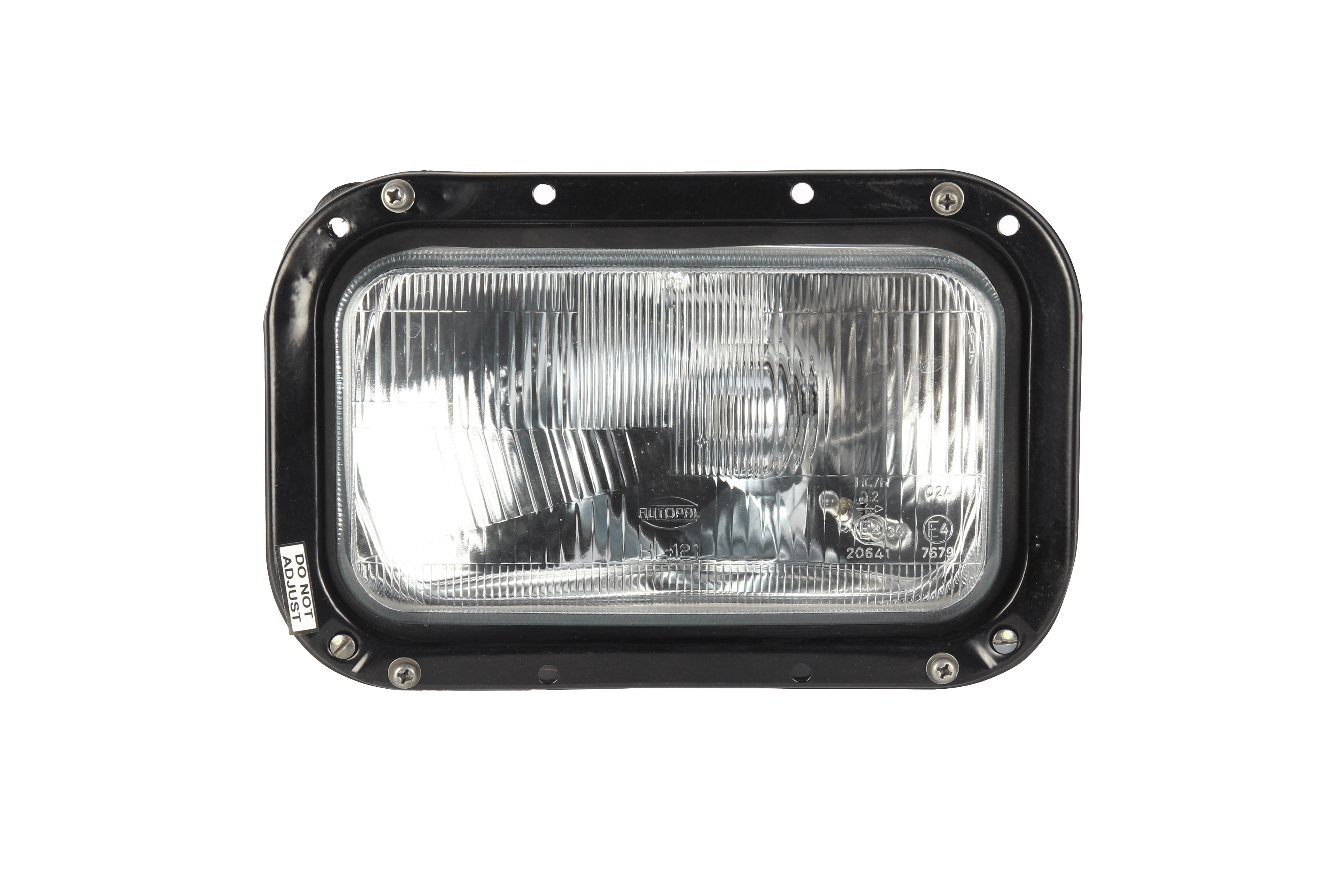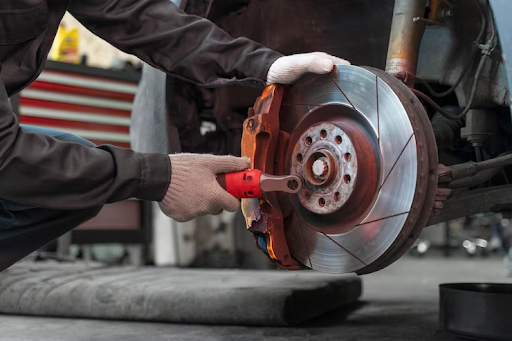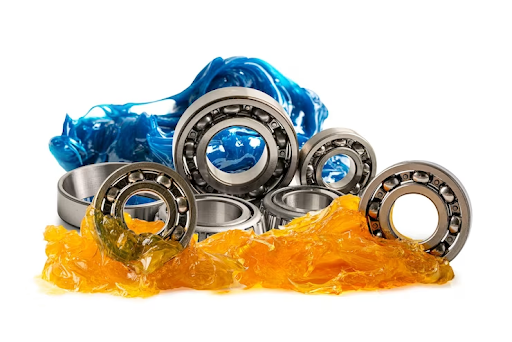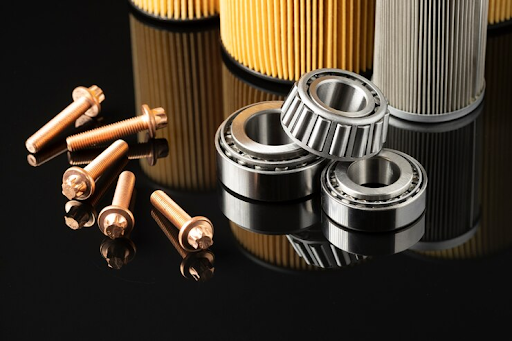Head Lamp


At some point, you'll need to look into the maintenance requirements for your vehicle, particularly for spare parts that undergo regular wear and tear. Among these, your brakes, specifically the brake pads or liners, are vital for your safety. In today’s market, you will find a wide array of options available when it comes to selecting brake pads and liners but not all of them will be of genuine quality. You must make sure the brake pad you choose is not fake otherwise, it may affect the operation of the entire braking system and cause harm to your vehicle.
The evolution of the automotive brake system has been remarkable. It has progressed from the older mechanically-operated brake pads and drum system to the modern computer-controlled ABS. Regardless of the system, all brake parts will inevitably wear out and will require replacement one by one. Among these parts, brake pads endure the most wear and damage. While it’s generally advisable to stick with the Original Equipment Manufacturer (OEM) brake system part, but sometimes the customer gets misled by counterfeit brands.
Following are some indicators that will help the audience identify the right Brake Liner for their commercial vehicle:
Table Of Contents :
Choosing the Right Brake Pads for Your Vehicle
- All-weather performance:
- Brake Pad & Liner lifetime:
- Noise & vibration:
- Friction response to temperature:
All-weather performance:
Quality brake pads are expected to deliver consistent performance in a variety of weather conditions, whether it's dry, wet, muddy, hot, or cold. This versatility ensures that your vehicle's braking system remains effective and reliable under diverse environmental circumstances.
Brake Pad & Liner lifetime:
Both the brake pads and liners are susceptible to wear in your vehicle's braking system. But a genuine quality Brake pad would last longer and wear out slowly in comparison to fake parts. Check the lifetime and compare before selecting a brake pad.
Noise & vibration:
Also consider the level of noise, vibration and even the pressure you feel when pressing down the pedal.
Friction response to temperature:
The friction profile of brake pads is assessed by measuring how much force is required to apply on the brake pedal to achieve a similar response during emergency braking as compared to regular braking. This feature helps determine the brake pad's performance and its ability to provide consistent stopping power under different braking conditions.
Most importantly the best advice for replacing brake pads is to always follow the manufacturer’s recommendation while choosing a brake pad. In most cases, this means you will ask for OEM replacement parts only. Moreover, based on the type of vehicle, your brake pad should be made of 3 materials Organic, Semi-metallic, and Ceramic brake pads.
1. Organic Brake Pad
In the past, brake pads were crafted from asbestos, a rigid but hazardous substance known to be a source of various respiratory illnesses. Following the ban on asbestos, brake pads began to be produced using a blend of diverse materials like carbon, glass, rubber, fibers, and others. Organic brake pads are renowned for their quiet operation and gentle application of braking force. However, their primary downside is their relatively shorter lifespan.
2. Semi-Metallic Brake Pads
Most vehicles on the road today rely on semi-metallic brake pads. These pads are made from a mixture of copper, iron, steel, and various metals, which are blended with graphite lubricants and other components to control heat build-up. Semi-metallic brake pads are frequently chosen as original equipment manufacturer (OEM) solutions for heavy-duty vehicles because they have an extended lifespan and can effectively minimize friction. This quality makes them particularly well-suited for heavier trucks, and SUVs, allowing these vehicles to stop more efficiently.
3. Ceramic Brake Pads
The latest addition to the brake pad market is the ceramic pad. Ceramic brake pads were introduced in the 1980s as a safer alternative to the older asbestos-based pads. These brake pads are crafted from a hardened ceramic material infused with copper fiber. Thanks to their distinctive composition, they typically have the longest lifespan among the major types of brake pads and provide a gentle application of braking force. However, there are a couple of downsides to consider. First, while they can handle high temperatures, they are not well-suited for colder climates, as the material is prone to cracking when exposed to extreme cold conditions. Additionally, ceramic brake pads tend to be the most expensive option in the market.
Tata Genuine Parts brake pads are a testament to the brand's commitment to safety, quality, and performance. Designed and manufactured to meet stringent standards, these brake pads are the ideal fit for Tata Motors Commercial Vehicles. What sets Tata Genuine Parts brake pads apart is their reliability, as they are engineered to ensure optimal braking performance even in challenging conditions. With a focus on safety and longevity, these brake pads not only provide peace of mind to vehicle owners but also contribute to overall road safety. When it comes to replacing brake pads, choosing Tata Genuine Parts is a decision that guarantees both the safety of the passengers and the long-term performance of the vehicle.

Table of Contents :
Genuine Tata Filters VS. Non-Branded Filters Air Filters Oil Filters Fuel FilterAir Filters
A vehicle's engine requires a combination of fuel and clean air for proper combustion and functioning. The air filter plays a critical role in ensuring that only clean air enters the engine. Genuine Air Filters are designed to remove impurities such as dust, dirt, pollen, and debris from the incoming air. These impurities can be harmful to the engine if they enter the combustion chamber.1. Engine Protection:
Allowing impurities into the engine can cause damage to various components, including the cylinders, pistons, and valves. Over time, this can lead to reduced engine efficiency and increased maintenance costs.2. Fuel Efficiency:
A Genuine air filter ensures that the engine gets a consistent and optimal air-to-fuel ratio, which is crucial for fuel efficiency and performance. If impurities enter the engine, the air-fuel mixture may be disrupted, leading to reduced mileage and power.3. Emissions:
A clogged or fake air filter can result in incomplete combustion, leading to increased emissions of pollutants, which can be harmful to the environment and may cause your vehicle to fail emission tests. To avoid these issues, it's important to use a genuine, high-quality air filter and replace it according to the manufacturer's recommendations. Using a fake or low-quality air filter can indeed lead to major damage to your vehicle's parts and may result in costly repairs. Regular maintenance and proper care of the air filter can help keep your engine running smoothly and efficiently.Oil Filters
Similarly using a fake oil filter can lead to some seriously detrimental effects on your engine. Genuine oil filters are produced by branded manufacturers and are specifically designed for your commercial vehicle model. They are built to meet the manufacturer's specifications, ensuring reliability and performance.1. Blocked Oil Filtration:
Fake Filters often have faulty bypass valves. If the oil filter becomes blocked or clogged, it can lead to a situation where the bypass valve will not allow oil to pass through effectively. This is a critical issue because it can expose crucial engine parts to damage and result in significant expenses.2. Engine Damage:
Counterfeit filters are ineffective at removing dirt, metal, and other particulates from your engine oil. As a result, these particles find their way into your engine, causing gradual damage to critical parts in your vehicle. Thus, unfiltered oil can lead to the need for a costly and extensive engine rebuild.3. Reduced Service Life:
Non-branded filters ultimately diminish your vehicle's longevity, leading to more frequent breakdowns and increased visits to the mechanic. This increased frequency of repairs contributes to escalating service costs. To ensure you choose genuine filters only opt for an authorized dealership associated with your vehicle's brand. Dealerships are known for using genuine, manufacturer-approved parts. If visiting a dealership is not feasible, consult with your mechanic or repair shop. Ask if they source and use genuine replacement parts from the authorized dealer network.Fuel Filter
Genuine and spurious fuel filters show key differences in their quality and performance. Much like air filters and oil filters, it should be able to trap impure elements to ensure a clean and even fuel flow, which assists in optimum engine performance and extends the life of the engine.1. Injector & Pump Damage:
Contaminants that make their way past the filter can damage critical parts of the fuel system, such as fuel injectors and the fuel pump. This can lead to costly repairs and decreased engine efficiency.2. Reduced Fuel Economy:
An inefficient fuel filter can cause a decrease in fuel economy because the engine has to work harder to maintain performance, and you may end up burning more fuel than necessary.3. Safety Concerns:
In extreme cases, a compromised fuel filter could lead to fuel leaks posing a safety risk to the vehicle and its occupants. To avoid these potential issues, it's important to use genuine, high-quality fuel filters that are designed to meet the specifications of your vehicle. Regular maintenance and replacement of the fuel filter, as recommended by the vehicle manufacturer, can help ensure the proper functioning of your fuel system and protect your engine from damage. Tata Genuine Parts, from the family of Tata Motors itself, is a brand that offers genuine spare parts manufactured as per OEM (Original Equipment Manufacturer) specifications. Tata Filters ensure that no impurities pass through them and your vehicle has the cleanest air, oil, and fuel. Each of the products undergoes automotive industry testing standards and provides excellent filtration solutions.
In today's market be it in fashion or technology everything that gets produced has a counterfeit version. Similarly, automotive spare part markets are flooded with numerous counterfeit brands that are difficult to differentiate from genuine brands.
In comparison with Original Equipment Manufacturers (OEM) and genuine spare part brands, counterfeit parts are more likely to wear out faster as these parts rarely undergo the safety and quality assurance testing mandatory for the OEM.
In some cases, customers may unknowingly fall victim to fake dealers selling counterfeit parts, while others opt for counterfeit brands due to the elevated cost of genuine parts. For those seeking genuine spare parts, how can they effectively distinguish between genuine and counterfeit options?
Table of Contents :
Identifying Fake VS Genuine Parts
Buy from company-authorized retailers
Consumers often stay confused about how distinct the products offered by local retailers and brand-authorized retailers truly are. The best way to avoid the fake parts is to buy from brand suppliers. Although there's a slight chance that local retailers can make their way to the supply chain, tracing the source of the spare parts can help prevent customers from being misled. Moreover, the chances of getting the most accurate and precise replacement parts are very high when you buy from brand suppliers in comparison to counterfeit brands.
Tata Genuine Parts includes an extended network of distributors and retailers who never falter in providing high-quality spare parts that ensure peak performance of commercial vehicles. They can suggest you better options and support you with various other information.
Examine the packaging
Fake parts usually come in poor packaging. They are found in cheap and fragile boxes that might include wrong spelling and absurd serial numbers. Whereas genuine spare parts are always packed in high-quality packaging and shipped with care. One can compare both and study the small details like the box material and its thickness to spot the difference.
Tata Genuine Parts are boxed with care in firm and sturdy packages. The TGP pack is unique as it carries 5 different marks of identification that differentiate it from other brands. It includes a prominent TATA logo, with valid Distributor code and material details. At the back, you will even get a helpline number that will help you connect directly to the right team concerned.
Mismatched parts
While examining a fake part you may come across a few differences with the old one. It can be the colour, weight, or size of the product. A few of the parts may not fit properly, showcase crooked edges and poor finish. Whereas, genuine parts are manufactured in state-of-the-art factories and with utmost precision. Finding a defect in a brand-new genuine part is very rare.
Tata Genuine Parts are manufactured in specification with Tata Motors Commercial Vehicles, hence they are the perfect fit for any OE replacement.
Incomplete Instruction
While reading the instructions behind the pack of spare parts few of them might not make sense, immediately identify the same as a fake part and avoid buying it. Genuine spare part packs will include proper steps, tables even diagrams for a complete explanation of the product. Many spare parts come equipped with a QR code that can be scanned using a smartphone to verify their authenticity, but it is not always the same when it comes to fake parts.
Tata Genuine Parts packs always carry a QR code with all relevant information about the product. The customers can easily trace back the product’s origin or contact the concerned team for support.
In case you identify any of these warning signs, don't buy the product, there are high chance the product will be fake. Choose only genuine parts and prevent the issues associated with the use of counterfeit spare parts, which could potentially harm your vehicle and cost you extra for maintenance.



